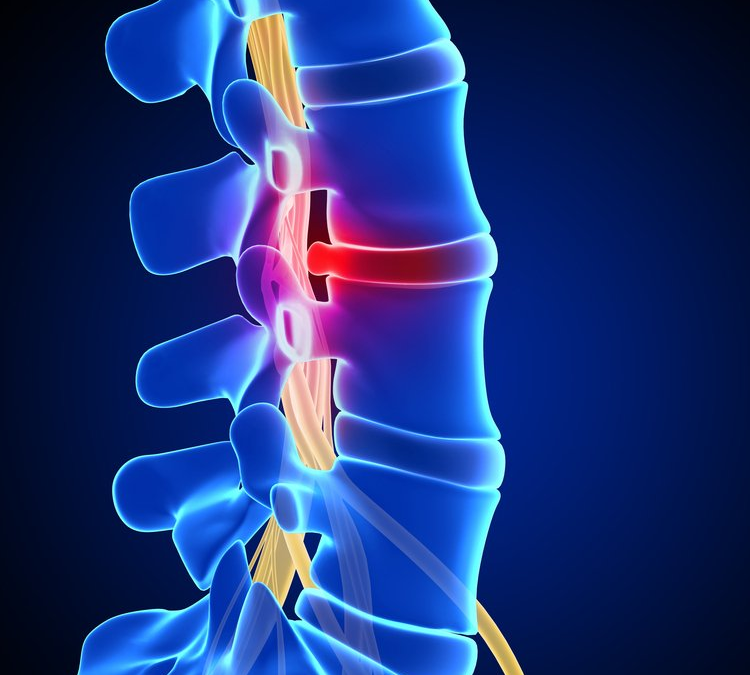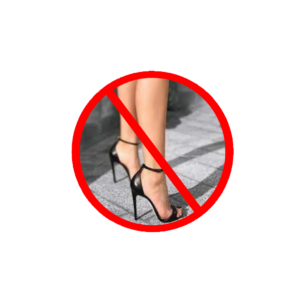Before we dive into how to prevent a herniated disc, let’s define the injury.
What is a herniated disc?
A herniated disc refers to a specific kind of injury involving one of the rubbery cushions that sit between the individual bones (vertebrae) that make up your spine.

Spinal discs have a soft, spongy center called a nucleus, encased inside a tough, rubbery exterior called an annulus. Also known as a slipped disc or a ruptured disc, a herniated disc occurs when a piece of the nucleus squeezes out through a tear in the annulus.
A herniated disc, which can occur at any level of the spine, can then put pressure on a nearby nerve. Depending on the location of the herniated disc, it can cause pain, numbness, or weakness in an arm or leg.
Most often, spinal discs tend to herniate in the lower back (Lumbar Spine), although they may also occur in the neck (Cervical Spine).
Who are the most at risk for a herniated disk?
People between the ages of 35-50 years old are most at risk. Those with physically demanding jobs where they are required to stand all day or lift heavy objects have increased risk. People who play physically intense sports are also at increased risk. Men have about twice the risk of a lumbar herniated disc than women.
Now that we have an understanding of what a herniated disc is, here are 5 tips for preventing this injury.
1.) Exercise regularly and maintain a healthy weight; excess weight puts pressure on your lower back.
- Try yoga: One type of exercise recommended by doctors is yoga. Stretching every day and also stretching correctly is crucial. If you attend classes, do not be afraid to ask your instructor for help if something does not feel right. Incorrectly stretching could potentially result in injury, so ask an instructor for advice and adjustments to poses.
If you cannot attend yoga classes in person, watch videos from Youtube and practice simple poses. For examples, see the images below.
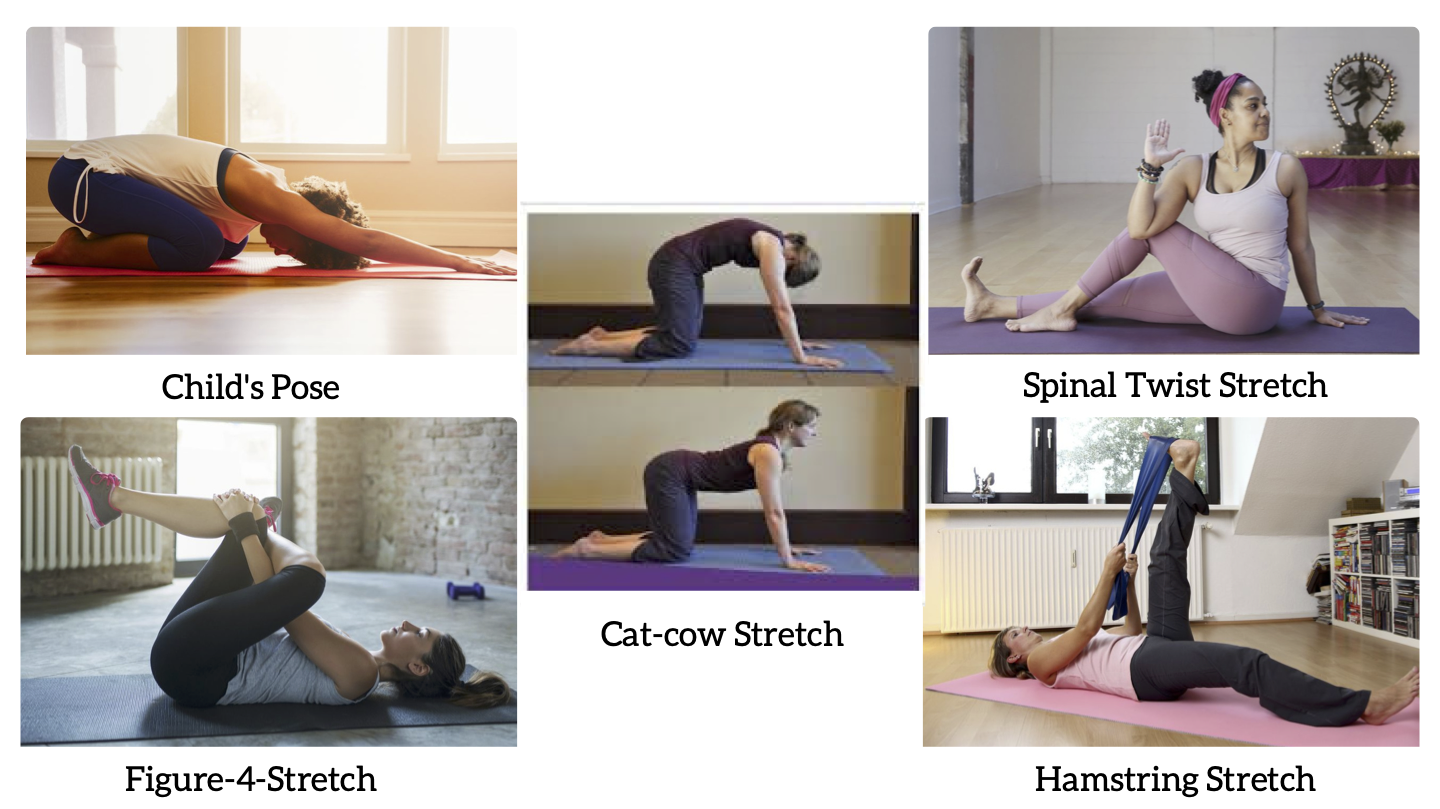
- Strengthen your core: A strong core will support your lower back. When doing exercises, take your time and listen to your body. Pilates is an effective way to strengthen your core in a way that is safe for your body. Pilates is good for people of all ages, men, and women because the exercises are lighter on your joints. Many studios use reformer machines that take the pressure off your joints but still target key areas of your body like your core, thighs, calves, back, and arms. If you feel discomfort, ask the instructor for modifications.
- Practice a well-balanced diet: Do you ever feel hungry soon after eating a meal or snack? People tend to go back to snacks because the meals they eat do not leave them satisfied. A meal consisting of a carbohydrate, protein, and a third food group like dairy, fruit, or vegetable will keep you full longer, more energized, and more satisfied. Eating more if you are hungry can be fine, but be sure to eat until you’re full. Many people believe skipping out on carbs will help you lose weight quickly, however, eating too little can harm your body and actually cause weight gain in the future as your metabolism slows.
2.) Practice good posture.
Bad posture happens easily if you do not pay attention to it and do not practice good posture regularly. A general lack of awareness of sitting positions could be contributed to looking at our phones and using our computers. It is important to be mindful of your posture by keeping your shoulders down and relaxed and your back straight. Hyper-arching your back happens when trying to sit up extra straight. This is bad for your spine and can cause tension in your shoulders and/or shoulder blades. When sitting up straight, think of stacking each vertebra on top of the other. A visual of proper sitting posture is below.
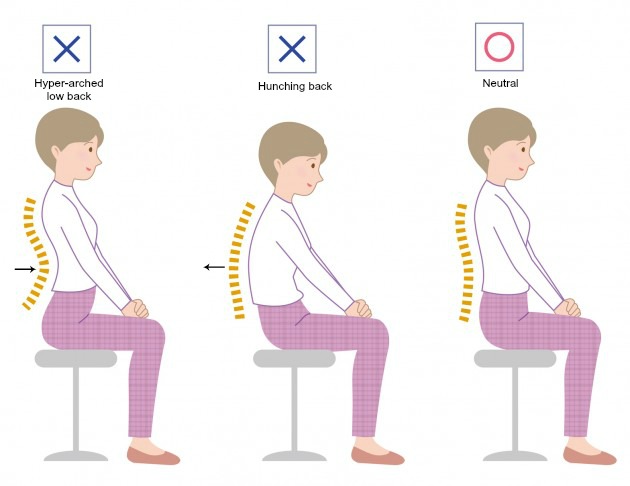
3.) Use proper lifting techniques.
When lifting heavy objects, be sure to get close to the object, bend your knees and maintain a good posture.. Keep a wide stance and squat down, slowly pick up the object and hold it close to your body at about belly level. Walk slowly with the object and try to avoid twisting while holding the object. Use your feet to change directions and take small steps. Rushing to carry objects can result in injury so take your time. When setting the object down, slowly squat down with your knees and hips. Do NOT bend to pick up a heavy object above shoulder level and avoid bending at the waist. Bending at the waist can harm your back by shifting excessive force onto your discs.
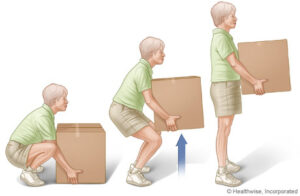
4.) Stop smoking.
While this tip may seem out of place, smoking actually weakens the spinal discs, making them susceptible to rupturing. Smoking also affects your lungs and can negatively affect your breathing, making regular exercise more difficult. Lastly, smoking negatively affects a person’s eating habits by increasing satiety (when the nerve receptors in the brain send signals to the brain that you are full) and decreasing appetite. As previously mentioned, it is important to maintain a well-balanced diet.
Stopping smoking can be difficult.-some recommendations to help quit include: Setting a stop date, giving yourself time to mentally prepare, identifying triggers, eliminating smoking reminders, and reaching out to friends and family for support.

5.) Avoid wearing high heels.
High heels certainly make a fashion statement, however, these shoes can be more than uncomfortable, and over time they may be quite harmful to your body. Not only can high heels irritate the feet and be hazardous for the ankles, but they also strain the spine.
The plantar fascia ligament forms the arch on the sole of the foot and connects to the calf muscles, which connect to the hamstrings. The hamstrings directly affect the lower back, so when the plantar fascia in your foot stretches while wearing heels, everything from your feet to your back tightens.
Herniated discs cause chronic pain and can drastically affect your day-to-day. Taking care of your spinal health can be as easy as following these 5 tips. Prioritizing your health does not have to be difficult, all it requires is practicing a little mindfulness in your day-to-day and possibly reaching out to loved ones for extra support.
If you are at high risk for a herniated disc, practicing these prevention tips may be beneficial. If you suspect you may suffer from a herniated disc, please reach out to Nextgen Wellness Group to help receive the care you deserve. Contact us to set an appointment and begin on the path to effective pain management.

